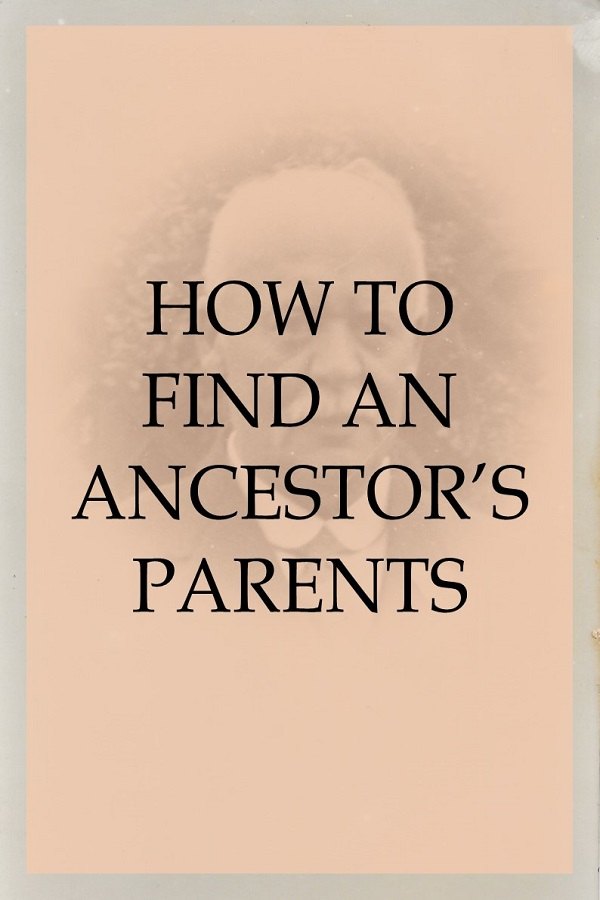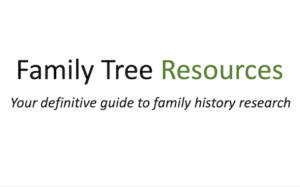
There are many ways of finding out about an ancestor’s parents, but one of the main ways is to use vital records such as birth and marriage certificates because marriage certificates normally include the father’s name, and birth certificates both parents names unless the child was illegitimate.
The first place to look to find an ancestors parents is vital records. Birth certificates usually list birth parents’ names, along with the mother’s maiden name.
If the child was illegitimate, however, the birth certificate normally states only the name of the mother and the father is not usually mentioned.
The father’s name is usually mentioned on a marriage certificate, but the mother is not mentioned. Please be aware that the father’s name may not be accurate, however.
My ancestor Isaac Dunkley and his brother William were both illegitimate, yet on William’s marriage certificate when he married Ann Jannett (McJannett) on 12 October 1847 in Allexton, Leicestershire, stated that Joseph Dunkley was his father. Joseph was in fact his Uncle.
Isaac, when he married Jane Jannett (McJannett) on 26 September 1864 in Courteenhall, Northamptonshire, stated that his father was John Dunkley. John was in fact his grandfather!!
You can also use a marriage certificate to find a woman’s father. If she was a widow when she married, the father may have a different surname, which could indicate that this was her maiden name, and thus you may be able to find her birth registration, which may give you both parents’ names.
Use Census Returns To Find Your Ancestors
You can also find your ancestors using census returns. Census Returns can be especially useful if you have been unable to find your ancestor in vital records.
If you are unable to find a census entry for your ancestor when he/she was a child, it is worth checking when they had become adult because a parent or parents may have been living with them on census night.
It is also possible that the parents may have been living in the same area as their child, so when perusing a census return, it is prudent to not only check the household they are living in, but also to check neighbouring houses just in case the parents were living nearby.
If you find a parent living with their child or nearby, it is prudent to check earlier census returns to see if you can find the parents’ household. You can then use this information to see which family members were living in the house, and perhaps order birth certificates of siblings.
Using the GRO Index
You may also be able to check for a marriage of the parents using the GRO Index, especially through the FreeBMD website, because you can search by first name and surname and can also add the spouse’s name.
It is then possible to use the GRO Index website to search for children born to these parents, cross-referencing the children to the census return. Although you can search the GRO Index for free, please be aware that if you wish to order a certificate, a fee is payable. The Index covers births 1837-1934 and 1984-2020. Deaths are covered from 1837-1957 and 1984-2020. Marriages are not yet included in this index.
You can, however, put in a mother’s maiden surname into the GRO Index and see what children are listed as being born to these parents. Exercise caution, however. If you are searching for a common name such as Smith, it may be more difficult to ascertain the children born to the parents just using the Index.
For more information regarding how to use the GRO Index, please read my article: using the GRO Index for family history research.
Marriage Licences
A marriage licence may also provide details of your ancestors parents, especially if they were under the age of 21 when they married. Marriage licences are especially useful when searching for the parents of someone who married prior to 1837 when civil registration began in England and Wales.
Baptism Records
Baptism records can provide information about the parents of the child. Both parents are generally mentioned in the entry in the baptism register, and sometimes the maiden name of the mother.
If your ancestor was baptised in Yorkshire in the 18th century, a Yorkshire clergyman named William Dade felt that more information should be included in the register as follows:
- Child’s Name
- Seniority of the Child: whether first born etc
- Father’s Name
- Profession of the Father
- Place of Abode
- Names, professions and abodes of father’s parents
- Mother’s Name
- Mother’s Profession if she had one
- Names, professions and abodes of mother’s parents
- Child’s date of birth and baptism
This additional information is invaluable to the family historian, especially in the 18th century, when little information was normally included in the record. This method of record keeping did not last long, however, because the clergymen resented the extra work involved.
Surname as a Middle Name
If a child has a surname as a middle name, this can mean that a parent or grandparent has that surname, and it has been handed down the generations in that way. You can then again use the FreeBMD website to check for a marriage using these two surnames.
Name Not Necessarily the Name The Child Was Born With
One of the reasons you may not be able to find your ancestor’s parents is because the name the child married with is not necessarily the name they were born with. John George Tarbox, born in Drayton Parslow, Buckinghamshire in 1860, married as George when he married Ann Washington on 3 October 1879 in Drayton Parslow.
Using the information stated on the marriage certificate alongside census returns confirmed that John George and George were in fact the same person.
For further information about the reasons your ancestor may have changed his name, please read my article: why did my ancestor change his name
Family Announcements in the Newspaper
If a birth was announced in the newspaper, this invariably included the parents’ names.
If a marriage was announced in the newspaper, it normally stated the father of the bride and groom.
Indentures
Indentures can also provide clues as to a child’s parentage. I had no idea of the parentage of my ancestor Joseph Scrivener, born in 1733 in Potterspury, Northamptonshire.
An indenture dated 1808, however, stated that Joseph Scrivener of the indenture was the son of my ancestor Joseph Scrivener, and he in turn was the son of Richard Scrivener.
Using Wills to Find An Ancestors Parents
If a younger adult dies, and the parents are still alive, it is possible that the testator left money and/or property to them. Richard Scrivener, in his will of 1707, left money to his mother.
If you cannot find a will for one individual, try searching for a will of a sibling instead. This may give a clue as to their parentage, and reveal relatives you may never have known existed!!
Memorial Inscriptions
It is prudent to look for the gravestone of your ancestor. Gravestones can sometimes yield further information about your ancestor, especially if he or she was buried with other family members.
Ancestry Researched Already
If an ancestry has already been researched, or a visitation was made, you may find that the family history has already been recorded. These family histories can be found in record offices or libraries. If your ancestor was more illustrious, he or she may have been recorded in a book such as A Genealogical and Heraldic History of the Colonial Gentry, a copy of which can be searched online via archive.org.
It is also possible that you ancestors may have been mentioned in any town or village history.
Please exercise caution when looking in books containing family histories, however, because not all research will be of the same quality. Some histories have been meticulously researched, while others may rely on inaccurate information obtained from individuals. They may also rely on questionable documents.
Your ancestry may also have been researched as part of a project regarding the surname through the Guild of One Name Studies. They include family history research conducted for a particular surname all over the world.
You can search through an index of all the surnames currently being researched, and can also contact the person who has conducted the research.
If you find that the surname you are researching is not currently in their database, you are free to join the Guild and register the name as a study. You do, however, have to pay to join the Guild.
Using Online Trees To Check Information
Always check any information you find on online trees. Whilst some can contain accurate information, some are obviously inaccurate. You should always validate any information using official records where possible. For more information regarding the accuracy of family trees, please read my article: are family trees accurate?
If you cannot break down your genealogy brick wall, please read my article: 21 Genealogy Research Tips to Help You Find Your Ancestors.
